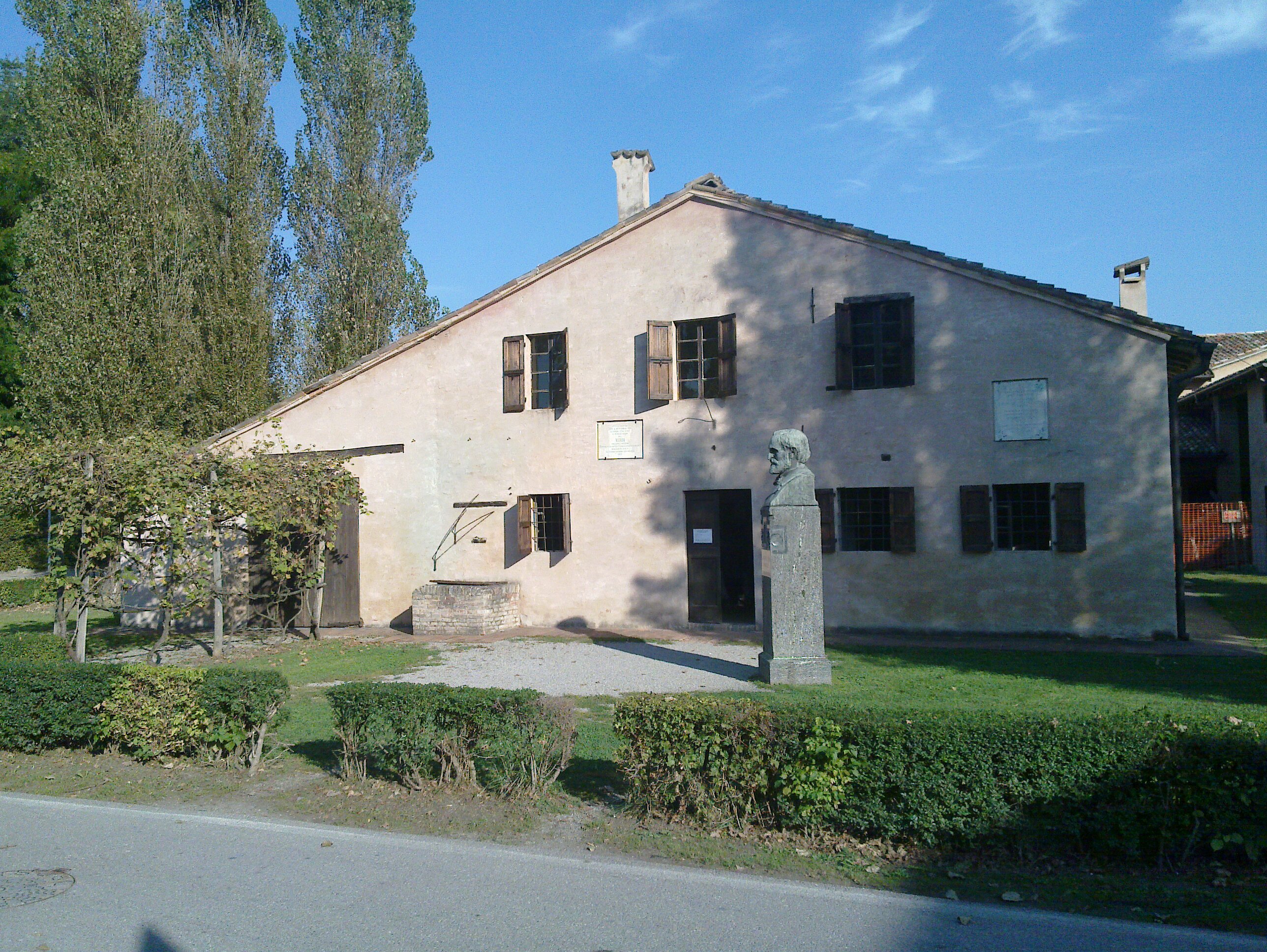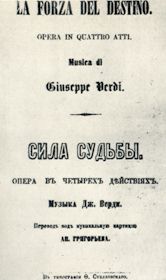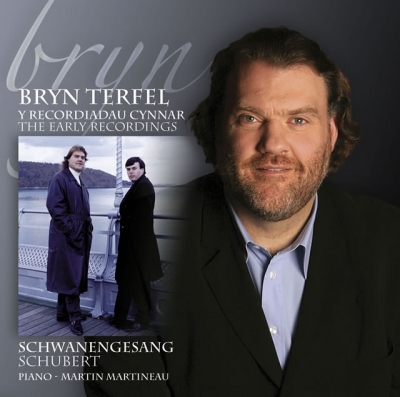|
Falstaff (opera)
''Falstaff'' () is a comic opera in three acts by the Italian composer Giuseppe Verdi. The Italian-language libretto was adapted by Arrigo Boito from the play ''The Merry Wives of Windsor'' and scenes from '' Henry IV, Part 1'' and '' Part 2'', by William Shakespeare. The work premiered on 9 February 1893 at La Scala, Milan. Verdi wrote ''Falstaff'', the last of his 28 operas, as he approached the age of 80. It was his second comedy, and his third work based on a Shakespeare play, following ''Macbeth'' and ''Otello''. The plot revolves around the thwarted, sometimes farcical, efforts of the fat knight Sir John Falstaff to seduce two married women to gain access to their husbands' wealth. Verdi was concerned about working on a new opera at his advanced age, but he yearned to write a comic work and was pleased with Boito's draft libretto. It took the collaborators three years from mid-1889 to complete. Although the prospect of a new opera from Verdi aroused immense ... [...More Info...] [...Related Items...] OR: [Wikipedia] [Google] [Baidu] |
Giuseppe Verdi
Giuseppe Fortunino Francesco Verdi (; 9 or 10 October 1813 – 27 January 1901) was an Italian composer best known for his operas. He was born near Busseto to a provincial family of moderate means, receiving a musical education with the help of a local patron. Verdi came to dominate the Italian opera scene after the era of Gioachino Rossini, Gaetano Donizetti, and Vincenzo Bellini, whose works significantly influenced him. In his early operas, Verdi demonstrated a sympathy with the Risorgimento movement which sought the unification of Italy. He also participated briefly as an elected politician. The chorus "Va, pensiero" from his early opera ''Nabucco'' (1842), and similar choruses in later operas, were much in the spirit of the unification movement, and the composer himself became esteemed as a representative of these ideals. An intensely private person, Verdi did not seek to ingratiate himself with popular movements. As he became professionally successful, he was able to ... [...More Info...] [...Related Items...] OR: [Wikipedia] [Google] [Baidu] |
Leonard Bernstein
Leonard Bernstein ( ; August 25, 1918 – October 14, 1990) was an American conductor, composer, pianist, music educator, author, and humanitarian. Considered to be one of the most important conductors of his time, he was the first American conductor to receive international acclaim. According to music critic Donal Henahan, he was "one of the most prodigiously talented and successful musicians in American history". Bernstein was the recipient of many honors, including seven Emmy Awards, two Tony Awards, sixteen Grammy Awards including the Lifetime Achievement Award, and the Kennedy Center Honor. As a composer he wrote in many genres, including symphonic and orchestral music, ballet, film and theatre music, choral works, opera, chamber music and works for the piano. His best-known work is the Broadway musical '' West Side Story'', which continues to be regularly performed worldwide, and has been adapted into two (1961 and 2021) feature films. His works include three symp ... [...More Info...] [...Related Items...] OR: [Wikipedia] [Google] [Baidu] |
Verdi Man And Musician (1897) 1
Giuseppe Fortunino Francesco Verdi (; 9 or 10 October 1813 – 27 January 1901) was an Italian composer best known for his operas. He was born near Busseto to a provincial family of moderate means, receiving a musical education with the help of a local patron. Verdi came to dominate the Italian opera scene after the era of Gioachino Rossini, Gaetano Donizetti, and Vincenzo Bellini, whose works significantly influenced him. In his early operas, Verdi demonstrated a sympathy with the Risorgimento movement which sought the unification of Italy. He also participated briefly as an elected politician. The chorus "Va, pensiero" from his early opera ''Nabucco'' (1842), and similar choruses in later operas, were much in the spirit of the unification movement, and the composer himself became esteemed as a representative of these ideals. An intensely private person, Verdi did not seek to ingratiate himself with popular movements. As he became professionally successful, he was able ... [...More Info...] [...Related Items...] OR: [Wikipedia] [Google] [Baidu] |
La Forza Del Destino
' (; ''The Power of Fate'', often translated ''The Force of Destiny'') is an Italian opera by Giuseppe Verdi. The libretto was written by Francesco Maria Piave based on a Spanish drama, ' (1835), by Ángel de Saavedra, 3rd Duke of Rivas, with a scene adapted from Friedrich Schiller's ''Wallenstein (trilogy of plays)#Wallenstein's Camp, Wallensteins Lager'' (''Wallenstein's Camp''). It was first performed in the Bolshoi Kamenny Theatre of Saint Petersburg, Russia, on 29 November 1862 Old Style and New Style dates, O.S. (N.S. 10 November). ' is frequently performed, and there have been a number of complete recordings. In addition, the overture (to the revised version of the opera) is part of the standard Musical repertoire, repertoire for orchestras, often played as the opening piece at concerts. Performance history Revisions After its premiere in Russia, ''La forza'' underwent some revisions and made its debut abroad with performances in Rome in 1863 under the title ' ... [...More Info...] [...Related Items...] OR: [Wikipedia] [Google] [Baidu] |
Un Ballo In Maschera
''Un ballo in maschera'' ''(A Masked Ball)'' is an 1859 opera in three acts by Giuseppe Verdi. The text, by Antonio Somma, was based on Eugène Scribe's libretto for Daniel Auber's 1833 five act opera, '' Gustave III, ou Le bal masqué''. The plot concerns the assassination in 1792 of King Gustav III of Sweden who was shot, as the result of a political conspiracy, while attending a masked ball, dying of his wounds thirteen days later. It was to take over two years between the commission from Naples, planned for a production there, and its premiere performance at the Teatro Apollo in Rome on 17 February 1859. In becoming the ''Un ballo in maschera'' which we know today, Verdi's opera (and his libretto) underwent a significant series of transformations and title changes, caused by a combination of censorship regulations in both Naples and Rome, as well as by the political situation in France in January 1858. Based on the Scribe libretto and begun as ''Gustavo III'' set in Stoc ... [...More Info...] [...Related Items...] OR: [Wikipedia] [Google] [Baidu] |
The Musical Times
''The Musical Times'' is an academic journal of classical music edited and produced in the United Kingdom and currently the oldest such journal still being published in the country. It was originally created by Joseph Mainzer in 1842 as ''Mainzer's Musical Times and Singing Circular'', but in 1844 he sold it to Joseph Alfred Novello (who also founded '' The Musical World'' in 1836), and it was published monthly by the Novello and Co. (also owned by Alfred Novello at the time).. It first appeared as ''The Musical Times and Singing Class Circular'', a name which was retained until 1903. From the very beginning, every issue - initially just eight pages - contained a simple piece of choral music (alternating secular and sacred), which choral society members subscribed to collectively for the sake of the music. Its title was shortened to its present name from January 1904. Even during World War II it continued to be published regularly, making it the world's oldest continuously publ ... [...More Info...] [...Related Items...] OR: [Wikipedia] [Google] [Baidu] |
Rossini
Gioachino Antonio Rossini (29 February 1792 – 13 November 1868) was an Italian composer who gained fame for his 39 operas, although he also wrote many songs, some chamber music and piano pieces, and some sacred music. He set new standards for both comic and serious opera before retiring from large-scale composition while still in his thirties, at the height of his popularity. Born in Pesaro to parents who were both musicians (his father a trumpeter, his mother a singer), Rossini began to compose by the age of 12 and was educated at music school in Bologna. His first opera was performed in Venice in 1810 when he was 18 years old. In 1815 he was engaged to write operas and manage theatres in Naples. In the period 1810–1823 he wrote 34 operas for the Italian stage that were performed in Venice, Milan, Ferrara, Naples and elsewhere; this productivity necessitated an almost formulaic approach for some components (such as overtures) and a certain amount of self-borrowing. Duri ... [...More Info...] [...Related Items...] OR: [Wikipedia] [Google] [Baidu] |
Un Giorno Di Regno
''Un giorno di regno, ossia Il finto Stanislao'' (''A One-Day Reign, or The Pretend Stanislaus'', but often translated into English as ''King for a Day'') is an operatic '' melodramma giocoso'' in two acts by Giuseppe Verdi to an Italian libretto written in 1818 by Felice Romani. Originally written for the Bohemian composer Adalbert GyrowetzGossett, p. 37: Gossett goes on to note that "for many Italian librettists of the time, French operatic texts were a rich vein to be mined." (Although ''Le faux Stanislas'' was a verse drama, not an operatic libretto.)Budden, p. 73 the libretto was based on the play ''Le faux Stanislas'' written by the Frenchman Alexandre-Vincent Pineux Duval in 1808. ''Un giorno'' was given its premiere performance at the Teatro alla Scala, Milan on 5 September 1840. After the success of his first opera, '' Oberto'' in 1839, Verdi received a commission from La Scala impresario Merelli to write three more operas. ''Un giorno'' was first of the three, but ... [...More Info...] [...Related Items...] OR: [Wikipedia] [Google] [Baidu] |
Ambrogio Maestri
Ambrogio Maestri (born 1970) is an Italian operatic baritone. He is especially known for his portrayal of the title character in Giuseppe Verdi's '' Falstaff''. He studied piano and singing in his home town, Pavia. In Italy he has performed at the Teatro alla Scala in Milan, Teatro di San Carlo in Naples, Teatro Regio in Parma, Teatro dell'Opera di Roma, Teatro Regio in Turin, Teatro Verdi in Trieste and the Arena di Verona. Abroad he has performed at the Deutsche Oper Berlin, Teatro Nacional de São Carlos in Lisbon, the Royal Opera House in London, the Teatro Real in Madrid, the Metropolitan Opera in New York City, San Francisco Opera House, the Konzerthaus and the Staatsoper in Vienna, the Gran Teatre del Liceu in Barcelona and others. He presents as a powerful, robust man on stage. '' Gramophone'' has described him as Italy's answer to Bryn Terfel, "fresh-voiced ndemotionally sympathetic." He has been critically praised by the likes of Riccardo Muti. Edward Seck ... [...More Info...] [...Related Items...] OR: [Wikipedia] [Google] [Baidu] |
Bryn Terfel
Sir Bryn Terfel Jones, (; born 9 November 1965) (known professionally as Bryn Terfel) is a Welsh bass-baritone opera and concert singer. Terfel was initially associated with the roles of Mozart, particularly '' Figaro'', '' Leporello'' and ''Don Giovanni'', but has subsequently shifted his attention to heavier roles, especially those by Puccini and Wagner. Biography Bryn Terfel Jones was born in Pant Glas, Caernarfonshire, Wales, the son of a farmer. His first language is Welsh. To avoid confusion with another Welsh baritone, Delme Bryn-Jones, he chose Bryn Terfel as his professional name. He had an interest in and talent for music from a very young age. A family friend taught him how to sing, starting with traditional Welsh songs. After winning numerous competitions for his singing, he moved to London in 1984 and entered the Guildhall School of Music and Drama where he studied under Rudolf Piernay. In 1988 he entered and won the Morriston Orpheus Choir Supporters' Associat ... [...More Info...] [...Related Items...] OR: [Wikipedia] [Google] [Baidu] |
Geraint Evans
Sir Geraint Llewellyn Evans (16 February 1922 – 19 September 1992) was a Welsh bass-baritone noted for operatic roles including Figaro in ''Le nozze di Figaro'', Papageno in ''Die Zauberflöte'', and the title role in ''Wozzeck''. Evans was especially acclaimed for his performances in the title role of Verdi's '' Falstaff''. He sang more than 70 different roles in a career that lasted from his first appearance at Covent Garden in 1948 to his farewell there in 1984. Early life Evans was born in Cilfynydd, the only son of William John Evans (1899–1978), a coal miner, and his wife, Charlotte May, ''née'' Thomas (1901–1923). His family was Welsh speaking, and Evans spoke Welsh before he learned English.Goodwin, Noël: "Evans, Sir Geraint Llewellyn (1922–1992)", Oxford Dictionary of National Biography, Oxford University Press, 200accessed 14 Dec 2008/ref> On leaving school, aged 14, he worked as a window dresser for the High Class Ladies' Wear store in Pontypridd. He took sing ... [...More Info...] [...Related Items...] OR: [Wikipedia] [Google] [Baidu] |
Tito Gobbi
Tito Gobbi (24 October 19135 March 1984) was an Italian operatic baritone with an international reputation. He made his operatic debut in Gubbio in 1935 as Count Rodolfo in Bellini's '' La sonnambula'' and quickly appeared in Italy's major opera houses. By the time he retired in 1979 he had acquired a repertoire of almost 100 operatic roles. They ranged from Mozart's mid-range baritone roles through Rossini's Barber through Donizetti and the standard Verdi and Puccini baritone roles to Alban Berg's '' Wozzeck''. He had a worldwide career as operatic baritone, appearing in (or recording the singing role) for over 25 films and, from the mid-1960s onward, was the stage director for about ten different operas which were given close to 35 productions throughout Europe and North America, including a significant number in Chicago for the Lyric Opera of Chicago. Gobbi and his wife, Tilde De Rensis, had a daughter, Cecilia, who now runs the "Associazione Musicale Tito Gobbi", an organ ... [...More Info...] [...Related Items...] OR: [Wikipedia] [Google] [Baidu] |
_1.jpg)









